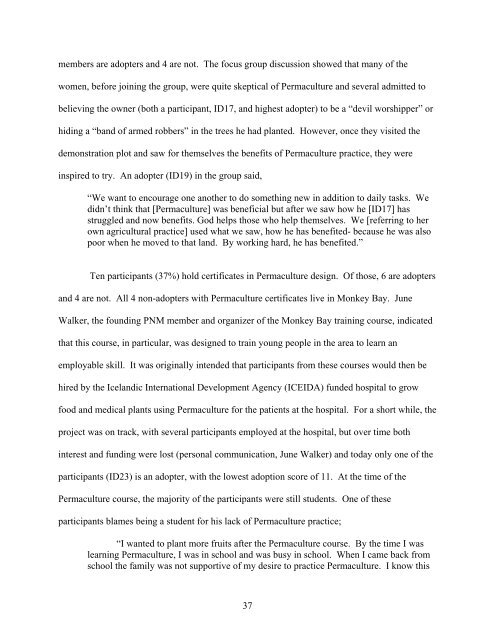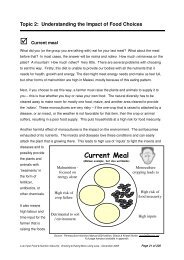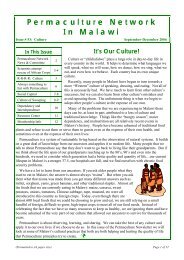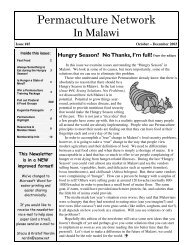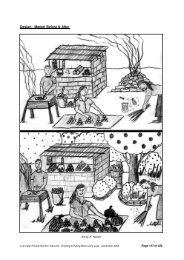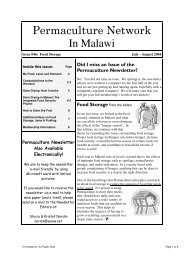Permaculture, Final Capstone Paper 5-26, Hope - Never Ending Food
Permaculture, Final Capstone Paper 5-26, Hope - Never Ending Food
Permaculture, Final Capstone Paper 5-26, Hope - Never Ending Food
Create successful ePaper yourself
Turn your PDF publications into a flip-book with our unique Google optimized e-Paper software.
members are adopters and 4 are not. The focus group discussion showed that many of the<br />
women, before joining the group, were quite skeptical of <strong>Permaculture</strong> and several admitted to<br />
believing the owner (both a participant, ID17, and highest adopter) to be a “devil worshipper” or<br />
hiding a “band of armed robbers” in the trees he had planted. However, once they visited the<br />
demonstration plot and saw for themselves the benefits of <strong>Permaculture</strong> practice, they were<br />
inspired to try. An adopter (ID19) in the group said,<br />
“We want to encourage one another to do something new in addition to daily tasks. We<br />
didn’t think that [<strong>Permaculture</strong>] was beneficial but after we saw how he [ID17] has<br />
struggled and now benefits. God helps those who help themselves. We [referring to her<br />
own agricultural practice] used what we saw, how he has benefited- because he was also<br />
poor when he moved to that land. By working hard, he has benefited.”<br />
Ten participants (37%) hold certificates in <strong>Permaculture</strong> design. Of those, 6 are adopters<br />
and 4 are not. All 4 non-adopters with <strong>Permaculture</strong> certificates live in Monkey Bay. June<br />
Walker, the founding PNM member and organizer of the Monkey Bay training course, indicated<br />
that this course, in particular, was designed to train young people in the area to learn an<br />
employable skill. It was originally intended that participants from these courses would then be<br />
hired by the Icelandic International Development Agency (ICEIDA) funded hospital to grow<br />
food and medical plants using <strong>Permaculture</strong> for the patients at the hospital. For a short while, the<br />
project was on track, with several participants employed at the hospital, but over time both<br />
interest and funding were lost (personal communication, June Walker) and today only one of the<br />
participants (ID23) is an adopter, with the lowest adoption score of 11. At the time of the<br />
<strong>Permaculture</strong> course, the majority of the participants were still students. One of these<br />
participants blames being a student for his lack of <strong>Permaculture</strong> practice;<br />
“I wanted to plant more fruits after the <strong>Permaculture</strong> course. By the time I was<br />
learning <strong>Permaculture</strong>, I was in school and was busy in school. When I came back from<br />
school the family was not supportive of my desire to practice <strong>Permaculture</strong>. I know this<br />
37


